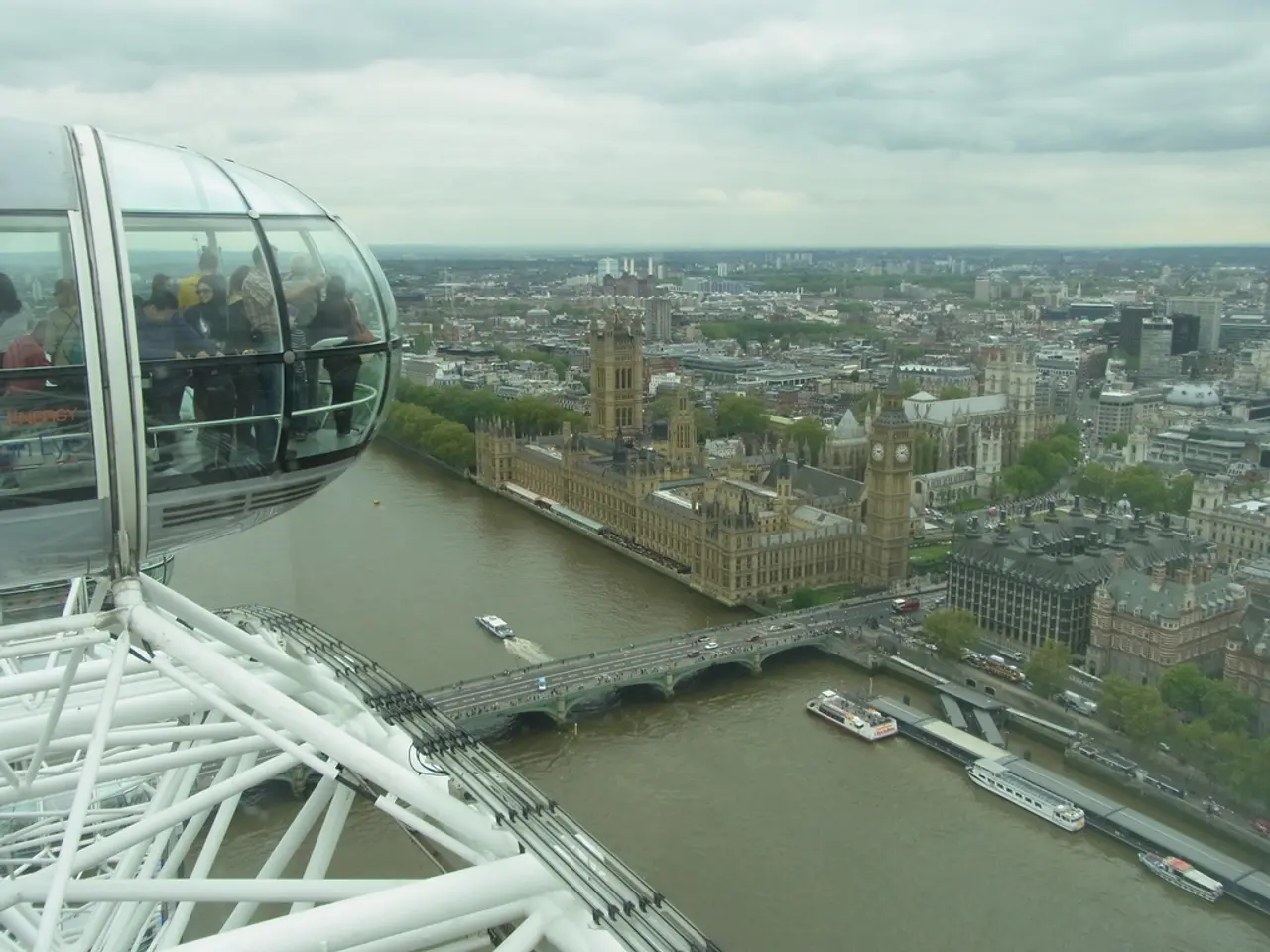Central Bank Maintains Interest Rate but Signals Possible Future Reductions Amidst Ongoing Global Uncertainties
The Bank o' Blighty ain't holding back on signalling a potential downturn in the job market could pave the way for more interest rate slices in the coming weeks. In a nutshell, this could mean a dip in the *Bank's* rate, chums.
Last month, 7 out of 9 policymakers on the monetary policy committee (MPC) stood their ground and kept the rate steady at 4.25%. But, there was more support than expected for a cut. The Bank had earlier hinted that the gang was cautious about the impacts of global turmoil, particularly the US trade war on and off.
The minutes of the Bank's meeting revealed a greater focus on the rising unemployment rate and signs of employers letting go of workers - which suggests it was a hot topic at the meeting. The Bank also acknowledged that threats like the US trade war and the Israel-Iran conflict were potential challenges. The recent clashes have already sent oil and gas prices soaring by double digits in a week.
Governor Andrew Bailey commented, "Interest rates are heading downhill, but there's no set path." He mentioned that the UK is experiencing softening in the labour market, which is under close scrutiny to see how it affects consumer price inflation.
The Bank kept its core message that it would proceed gradually and carefully. It noted that energy prices increased due to the Middle East conflict escalation, and the committee would remain vigilant about these developments and their impact on the UK economy.
The rise in the UK's unemployment rate, coupled with recent payrolled employment data, has been linked to businesses' backlash against budget measures introduced in April that hiked employer national insurance contributions and minimum wage demands.
Although a weaker labour market could provide room for the Bank to act through additional interest rate cuts, the Middle East conflict now looms large over their rate decisions. Nobody wants an inflation surge.
The UK's core inflation measure peaked above 11% in the aftermath of Russia's invasion of Ukraine, giving birth to what was coined as the cost of living crisis. Inflation across the economy was driven by unprecedented spikes in natural gas costs, causing not only household energy bills to skyrocket but also business costs.
Inflation currently stands at 3.4%, but it was already forecast to rise in the second half of the year before the Middle East conflict heated up. Financial markets anticipated a quarter-point cut at the Bank's next meeting in August and at least one more by the end of the year after the Bank's remarks.
Nicholas Hyett, investment manager at Wealth Club, remarked, "The Middle East conflict poses the risk of higher energy prices potentially driving inflation upward - although predicting the course of events there is a futile endeavor, and the Bank indicated that under current conditions, it expects inflation to remain broadly at current levels for the rest of the year." He added, "The risk is that all the uncertainty leaves the Bank paralyzed, with rates stuck at their current level."
- The escalating Middle East conflict, along with the ongoing trade war between the US and other countries, could potentially lead to an increase in inflation, posing a significant challenge for the Bank of England in its monetary policy decisions.
- The Bank of England's interest rate cuts might be influenced by the economic downturn in the job market, but the ongoing conflicts and trade wars could also contribute to a surge in inflation, which could hinder the bank's ability to lower interest rates and support businesses in the financial sector.






